第33章
Why then should tolerance, as far as the public sentiment is concerned, extend only to tastes and modes of life which extort acquiescence by the multitude of their adherents? Nowhere (except in some monastic institutions) is diversity of taste entirely unrecognised; a person may, without blame, either like or dislike rowing, or smoking, or music, or athletic exercises, or chess, or cards, or study, because both those who like each of these things, and those who dislike them, are too numerous to be put down. But the man, and still more the woman, who can be accused either of doing "What nobody does," or of not doing "what everybody does," is the subject of as much depreciatory remark as if he or she had committed some grave moral delinquency. Persons require to possess a title, or some other badge of rank, or of the consideration of people of rank, to be able to indulge somewhat in the luxury of doing as they like without detriment to their estimation. To indulge somewhat, Irepeat: for whoever allow themselves much of that indulgence, incur the risk of something worse than disparaging speeches- they are in peril of a commission de lunatico, and of having their property taken from them and given to their relations.** There is something both contemptible and frightful in the sort of evidence on which, of late years, any person can be judicially declared unfit for the management of his affairs; and after his death, his disposal of his property can be set aside, if there is enough of it to pay the expenses of litigation- which are charged on the property itself. All the minute details of his daily life are pried into, and whatever is found which, seen through the medium of the perceiving and describing faculties of the lowest of the low, bears an appearance unlike absolute commonplace, is laid before the jury as evidence of insanity, and often with success; the jurors being little, if at all, less vulgar and ignorant than the witnesses; while the judges, with that extraordinary want of knowledge of human nature and life which continually astonishes us in English lawyers, often help to mislead them. These trials speak volumes as to the state of feeling and opinion among the vulgar with regard to human liberty. So far from setting any value on individuality- so far from respecting the right of each individual to act, in things indifferent, as seems good to his own judgment and inclinations, judges and juries cannot even conceive that a person in a state of sanity can desire such freedom.
In former days, when it was proposed to burn atheists, charitable people used to suggest putting them in a madhouse instead: it would be nothing surprising now-a-days were we to see this done, and the doers applauding themselves, because, instead of persecuting for religion, they had adopted so humane and Christian a mode of treating these unfortunates, not without a silent satisfaction at their having thereby obtained their deserts.
There is one characteristic of the present direction of public opinion peculiarly calculated to make it intolerant of any marked demonstration of individuality. The general average of mankind are not only moderate in intellect, but also moderate in inclinations: they have no tastes or wishes strong enough to incline them to do anything unusual, and they consequently do not understand those who have, and class all such with the wild and intemperate whom they are accustomed to look down upon. Now, in addition to this fact which is general, we have only to suppose that a strong movement has set in towards the improvement of morals, and it is evident what we have to expect. In these days such a movement has set in; much has actually been effected in the way of increased regularity of conduct and discouragement of excesses; and there is a philanthropic spirit abroad, for the exercise of which there is no more inviting field than the moral and prudential improvement of our fellow creatures. These tendencies of the times cause the public to be more disposed than at most former periods to prescribe general rules of conduct, and endeavour to make every one conform to the approved standard. And that standard, express or tacit, is to desire nothing strongly. Its ideal of character is to be without any marked character; to maim by compression, like a Chinese lady's foot, every part of human nature which stands out prominently, and tends to make the person markedly dissimilar in outline to commonplace humanity.
As is usually the case with ideals which exclude one-half of what is desirable, the present standard of approbation produces only an inferior imitation of the other half. Instead of great energies guided by vigorous reason, and strong feelings strongly controlled by a conscientious will, its result is weak feelings and weak energies, which therefore can be kept in outward conformity to rule without any strength either of will or of reason. Already energetic characters on any large scale are becoming merely traditional. There is now scarcely any outlet for energy in this country except business. The energy expended in this may still be regarded as considerable. What little is left from that employment is expended on some hobby; which may be a useful, even a philanthropic hobby, but is always some one thing, and generally a thing of small dimensions. The greatness of England is now all collective; individually small, we only appear capable of anything great by our habit of combining; and with this our moral and religious philanthropists are perfectly contented. But it was men of another stamp than this that made England what it has been;and men of another stamp will be needed to prevent its decline.